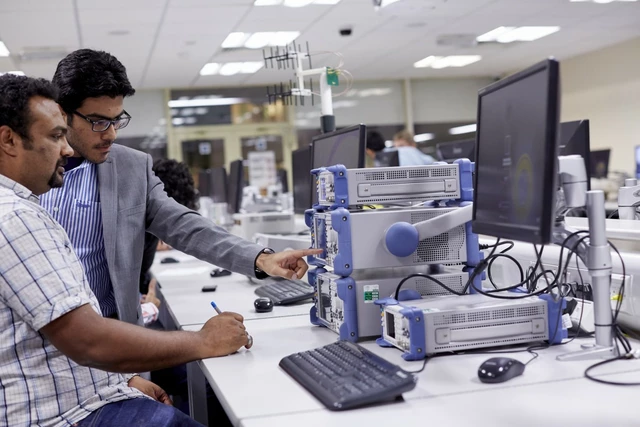Artificial Intelligence: Practical Ways It’s Changing India
AI isn’t a futuristic buzzword anymore – it’s part of daily workflows, from banking apps that predict fraud to farms that use drones for crop health. If you’re wondering why AI matters for you, the answer lies in speed, accuracy, and the ability to turn data into decisions.
Across Indian startups, AI helps smaller teams punch above their weight. A fintech firm can scan thousands of transactions in seconds, flagging risky behavior before a loss occurs. Meanwhile, a health‑tech company uses machine‑learning models to read X‑rays, cutting diagnosis time by half. These real‑world wins show AI’s value isn’t just in labs; it’s in the profit and safety gains businesses see right now.
Why AI Is a Game‑Changer Right Now
First, the data explosion in India creates a perfect feed for AI models. Mobile users generate billions of data points daily, giving algorithms rich material to learn from. Second, cloud services from global providers and Indian giants like JioCloud make powerful processors affordable for even a mid‑size startup. Finally, government initiatives such as the AI Task Force and dedicated research grants are lowering barriers for academic and industry collaborations.
When these forces combine, you get faster product cycles and more personalized experiences. For example, an e‑commerce platform can recommend products based on a shopper’s recent clicks, increasing conversion rates without extra marketing spend. That kind of instant, data‑driven insight is what separates companies that grow quickly from those that stall.
How AI Is Shaping India’s Future
Beyond profit, AI is tackling big societal challenges. In agriculture, AI‑driven weather forecasts help farmers decide when to plant or harvest, reducing waste. In education, adaptive learning platforms adjust content to each student’s pace, closing gaps for underserved regions. Even public safety benefits from AI‑powered video analytics that detect traffic violations or crowd movements in real time.
Career opportunities are also expanding. Skills like data labeling, model training, and AI ethics are in demand, and many institutes now offer short courses that focus on practical applications rather than theory. Whether you’re a fresh graduate or a mid‑career professional, upskilling in AI can open doors to roles that didn’t exist a decade ago.
Looking ahead, expect AI to become more embedded in everyday gadgets. Voice assistants that understand regional accents, smart city sensors that manage energy use, and AI‑driven financial advisories are already on the horizon. Staying curious and experimenting with small AI projects can give you a head start as the technology matures.Bottom line: AI is no longer a niche experiment. It’s a practical tool that’s already improving efficiency, creating jobs, and solving real problems in India. Keep an eye on the trends, try out simple AI tools, and you’ll be ready to ride the next wave of innovation.
Why artificial Intelligence is a leading technology?
Artificial Intelligence (AI) is taking center stage in the tech world and for good reasons. It's transforming multiple industries by automating tasks, enhancing efficiency, and providing deep insights into data that were previously unattainable. Moreover, AI is revolutionizing how we interact with technology by powering innovations like self-driving cars and virtual assistants. The potential of AI to drastically reshape our world is immense, which is why it's currently leading the technology frontier. It's an exciting era, and I am thrilled to see what AI has in store for us next.
Could quantum computing cause a technological singularity?
Quantum computing has the potential to revolutionize the way we use technology. It has the ability to process complex calculations in a fraction of the time that traditional computers require. This could lead to a 'technological singularity' - the point where technology becomes so advanced it surpasses human intelligence. Quantum computers have the potential to solve problems that are too complex for even the most powerful supercomputers. Scientists are researching ways to use quantum computing to solve problems in healthcare, finance, and cybersecurity. If successful, this could lead to a new era of technological advancement.






